Mia Kirshner: The Doe-Eyed Rebel Who Turned Vulnerability into Strength
Close your eyes and imagine a face that could stop time—deep, searching eyes that seem to know your secrets before you speak them. Soft lips, delicate but determined. A calm that feels unearthly, like the pause before a storm. That’s Mia Kirshner—the actress who didn’t just walk through Hollywood; she haunted it. She’s the woman whose beauty has always carried a quiet fire beneath it, the rebel whose greatest weapon was never her looks but her truth.

Born to a world of art, intellect, and resistance, Mia has always seemed like an old soul trapped in modern times. Her story isn’t about fame or glamour—it’s about honesty, empathy, and the courage to look life straight in the eye, even when it hurts.

From Snowy Toronto Streets to the Heart of Cinema
Mia Kirshner’s story began in February 1975, in Toronto, Canada, during one of those bitter winters where snow falls like feathers and silence feels sacred. Her father, Eli Kirshner, was a journalist who believed in words as tools for change. Her mother, Etti, a Bulgarian-born drama teacher, taught her daughter that emotion was not something to hide—but something to understand.

Their home was filled with books, oil paintings, and the sound of classical music mixed with the chatter of debate. While other children played with dolls, Mia was writing monologues. By the age of eight, she’d decided that acting wasn’t a dream—it was destiny.
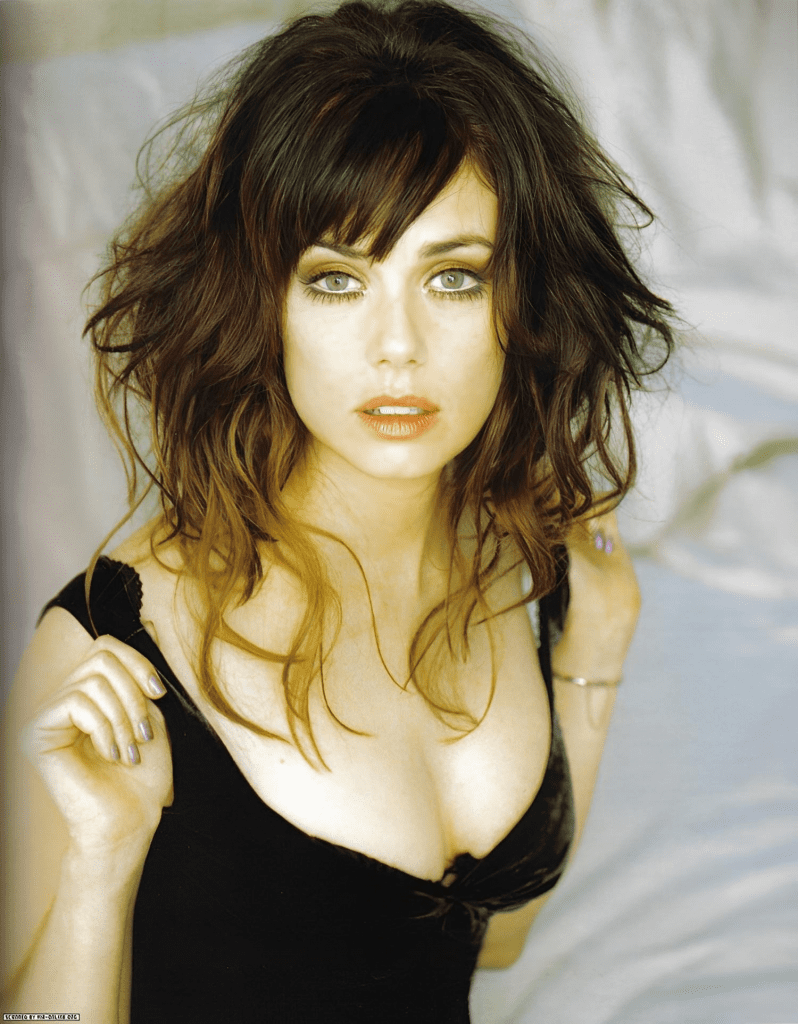
She enrolled in acting classes and, by twelve, landed her first commercial. But it wasn’t the fame that attracted her—it was the challenge of storytelling. While her friends were applying to universities, Mia skipped the traditional route. She chose the uncertainty of auditions and rejection over safety. Every “no” only sharpened her resolve.
Video : Mia Kirshner (Biography, Age, Height, Weight, Relationships)
The Breakthrough: When “Exotica” Changed Everything
1994 was the year everything shifted. Director Atom Egoyan was searching for someone extraordinary to play Christina in his haunting film Exotica. He needed vulnerability mixed with defiance—someone who could make an audience ache without uttering a word.
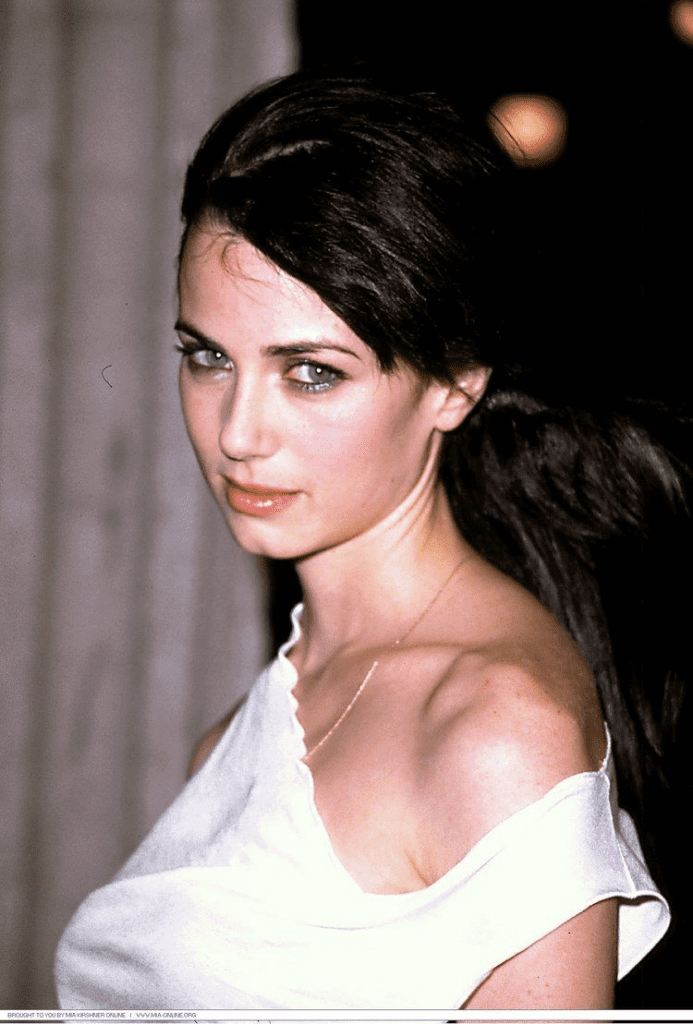
Nineteen-year-old Mia walked into the audition room, recited Rilke, and left everyone speechless. She got the part. Her performance was a revelation. Critics described her as “a storm behind glass.” Exotica premiered at Cannes and instantly turned her into one of the most intriguing new faces in cinema. Mia wasn’t just beautiful—she was believable. There was pain in her stillness, poetry in her silence.
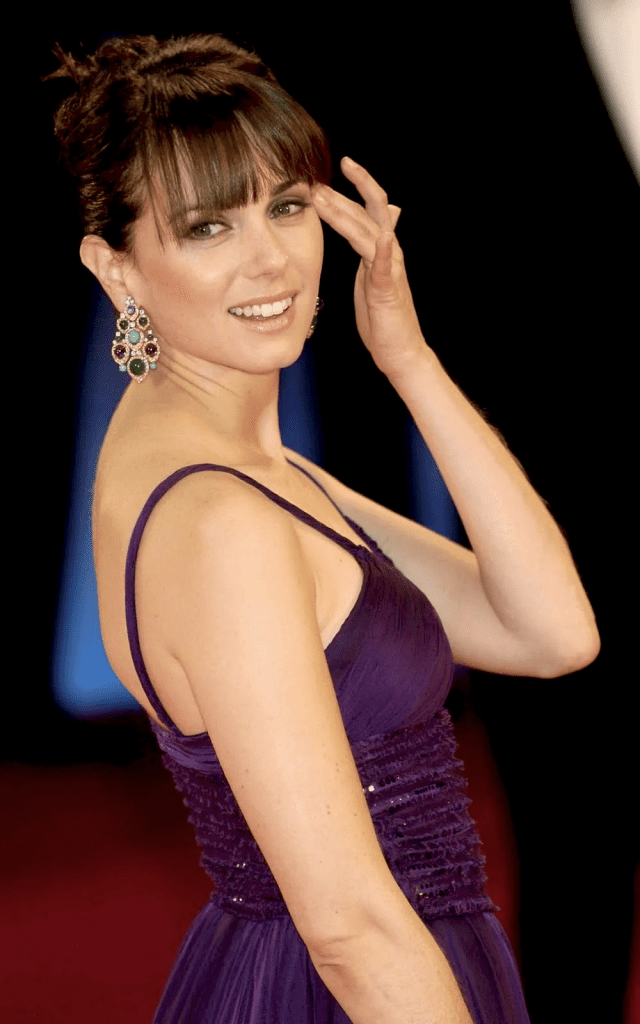
From there came roles in The Crow: City of Angels and Murder in the First, where she held her ground alongside Hollywood’s finest. But unlike many starlets, Mia wasn’t chasing the spotlight—she was chasing truth.

Beyond Beauty: The Courage to Play the Hard Roles
Mia Kirshner never accepted easy roles. She gravitated toward characters who were wounded, misunderstood, or silenced. She became known as the actress who refused to sugarcoat pain.
In The Crow: City of Angels, she immersed herself so deeply into grief that she would walk through graveyards at night, memorizing the stillness. In Mad City, she channeled the quiet frustration of those trapped by their own dreams. And in The Black Dahlia, her portrayal of Elizabeth Short—tragic, broken, yet hauntingly alive—remains one of her most underrated performances.

Every role Mia took seemed to challenge the idea of what women were “supposed” to be on screen. She wasn’t interested in being pretty—she wanted to be real.
The L Word: Breaking Barriers, Stirring Souls
Then came The L Word—a cultural earthquake that changed television forever. As Jenny Schecter, Mia Kirshner became both loved and loathed, but never ignored. Jenny was chaotic, vulnerable, brilliant, and broken—all at once. And Mia poured every ounce of her soul into her. She shaved her head for authenticity, gained weight to reflect postpartum pain, and read every piece of criticism online—not out of vanity, but to understand the conversation her character sparked.

Through Jenny, Mia helped bring LGBTQ+ stories to mainstream audiences, paving the way for representation that had long been denied. Off-screen, she carried that same energy into activism. She co-founded I Live Here, a project documenting stories from refugees, child soldiers, and women living through war. She visited conflict zones, drew portraits of survivors, and helped them share their voices with the world. That’s Mia’s paradox: an actress who can make you cry on-screen, then go out and make a difference off it.

Transformations and Triumphs: A Career of Reinvention
After The L Word, Mia refused to be boxed in. She dove into genre-bending roles—proving her range was as wide as her heart. In The Vampire Diaries, she portrayed centuries of heartbreak with quiet restraint. In Defiance, she ruled an alien world with compassion and cunning. And in Star Trek: Discovery, she became the unforgettable Emperor Georgiou—ruthless, regal, magnetic.
Each performance was a reminder: Mia doesn’t play characters—she embodies them. And while Hollywood tried to label her, Mia quietly built a second life behind the camera. She wrote, produced, and mentored young filmmakers, encouraging them to tell stories that matter, especially those the industry overlooks.

Love, Motherhood, and the Art of Disappearing Gracefully
Fame never defined Mia Kirshner—love did. After years in the limelight, she retreated from red carpets to live more softly. She met filmmaker Ryan Hilliger during a documentary shoot in Nairobi. Their shared love of storytelling blossomed into partnership, and in 2018, they welcomed a son, Bodhi. Motherhood changed everything for Mia. She stepped away from acting for a while, trading premieres for playdates, scripts for lullabies.

But life wasn’t without loss. She faced personal heartbreak, including the passing of loved ones and the quiet grief that accompanies change. Instead of hiding from it, she turned it into art. She painted, wrote poetry, and grew a small garden filled with lavender—the same color she often wore in her most iconic photos.
Video : Mia Kirshner S*xiest Tribute Ever
Mia Kirshner Today: The Quiet Renaissance
In 2025, Mia Kirshner is not just an actress—she’s a storyteller, an activist, a mother, and a mentor. Her mornings begin in Silver Lake, Los Angeles, where she meditates, sips matcha, and joins online meetings with young refugee poets she mentors. Her house is filled with art, laughter, and the occasional chaos of raising a curious child.

She’s currently directing her first feature-length film, Whisper Network, inspired by real stories of foster care survivors. The project is intimate, personal, and full of the emotional honesty that defines her work. On social media, she posts not selfies but sunsets, snippets of poetry, and reflections on healing. She’s proof that you can live in Hollywood without losing your soul.
Why Mia Kirshner Still Captivates the World
Search “Mia Kirshner eyes” and you’ll understand why the world never forgets her. But it’s not just her beauty—it’s her depth. She’s the actress who listens before she speaks, the artist who chooses meaning over fame, the mother who shows strength through gentleness.
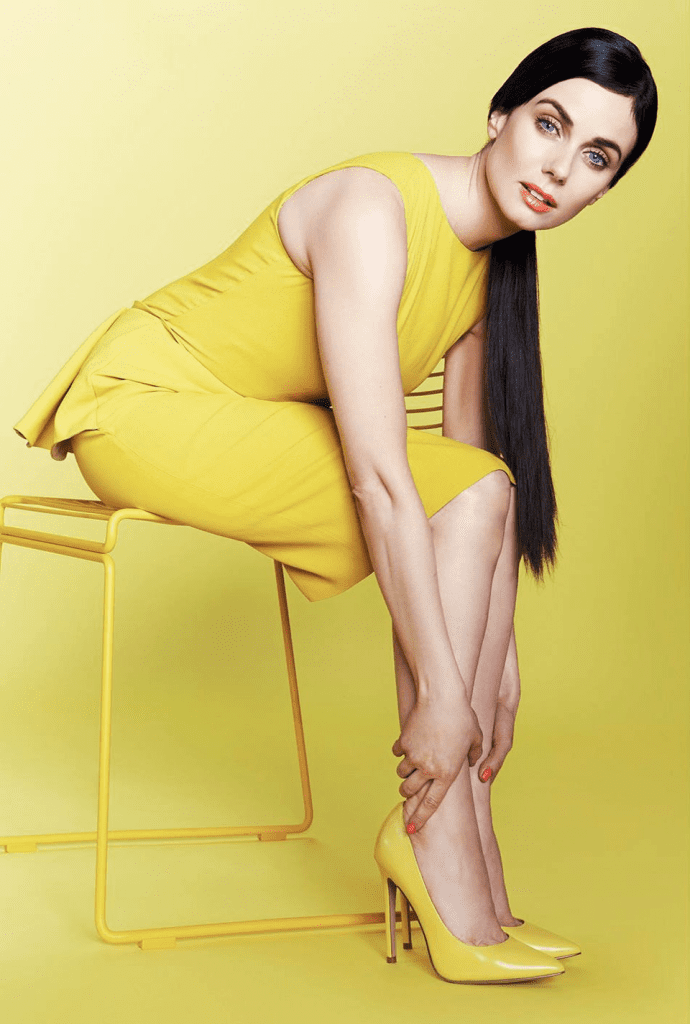
Fans tattoo her L Word quotes, activists cite her refugee work, and writers describe her as “the woman who taught vulnerability how to roar.” She connects with her audience not through perfection but through presence. Her power lies in what she doesn’t say—in the stillness, in the gaze, in the quiet defiance that tells you she’s still fighting, still dreaming, still feeling.
Conclusion: A Legacy of Truth, Tenderness, and Transformation
From the frozen streets of Toronto to the warm glow of Hollywood lights, Mia Kirshner has walked a path that few could endure and even fewer could define. She has proven that beauty means nothing without depth, that strength can live inside sensitivity, and that the most powerful performances come from those brave enough to be honest.
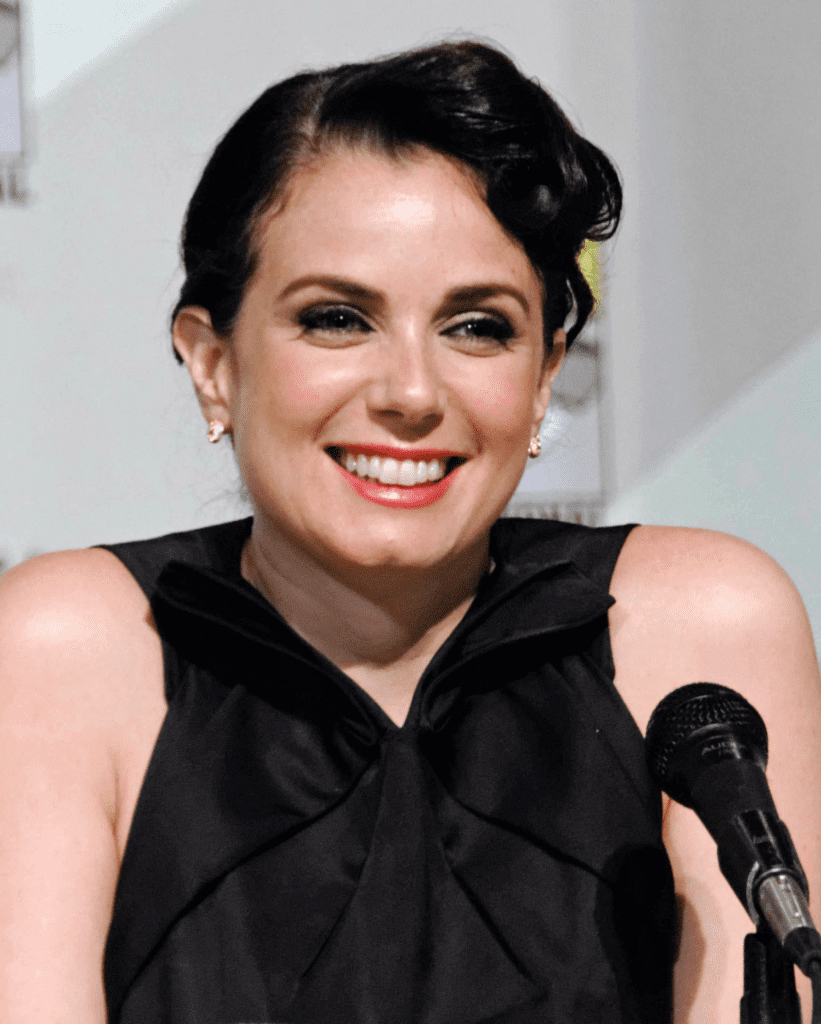
At fifty, she’s still redefining what it means to be a woman in film—complex, creative, and unapologetically human. Her story is not about fame or perfection—it’s about authenticity, courage, and evolution.
So next time life feels scripted, think of Mia Kirshner. Think of those eyes that hold both storms and stars. Because she reminds us that the truest kind of beauty doesn’t demand attention—it earns it. And Mia? She’s earned every moment.